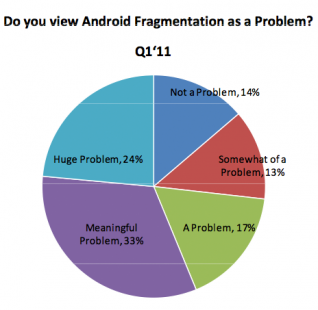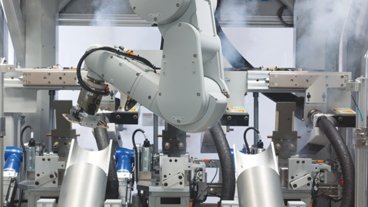Intel CEO: Google Android experiencing chaotic growing pains
Otellini asserted during an investor meeting in Santa Clara, Calif., that Google's efforts to attract users to Android will need to be tempered by efforts to stem the growing problem of fragmentation on the platform, CNet reports.
"Google's model is to get as broad a base as possible because, how do they get paid? They don't get paid by selling Android. They get paid by clicks. At the end of the day, the more pervasive Android is, the more money Google ultimately makes because advertising revenue can accrue from it," he said. "I think there is some growing pains that Android is going through...How do you create order out of chaos?"
According to Otellini, Apple stands on the other end of the spectrum with a high level of order in its products. "Apple's objective is to control everything end to end so they can control the experience and the pricing."
Android faces a problem similar to Microsoft's efforts to exert control over the Windows ecosystem, Otellini continued, noting that Windows originally ran on a variety of platforms before settling on Intel's x86 architecture.
In time, Otellini sees Android moving away from openness in order to fight fragmentation. "The notion of compatibility forwards and backwards, the notion of verification...is something you'll see imposed on the Android ecosystem over time. If you read the press about [Android's] anti-fragmentation agreements that's exactly what's happening today," he said.
Beyond just talking about Android, Otellini also took the opportunity to quell recent rumors that Apple will abandon Intel for the ARM architecture on its line of Mac laptops.
"[Apple's] growth in Macs has quadrupled since they shifted to Intel, their market share has quadrupled since they shifted to Intel. And that value proposition has served them very well," the CEO said. "I don't see their Mac line moving in any different direction anytime soon."
According to a survey last month, 87 percent of Android developers view fragmentation as a problem on the platform, with 57 percent viewing it as a huge or meaningful problem.
Reports that Google had clamped down on handset makers led some to suggest that the search giant was enforcing "non-fragmentation clauses" for Android licensees. Google VP Andy Rubin responded by noting that the company's anti-fragmentation program had been in place in version 1.0 of the mobile OS.
"Our approach remains unchanged: there are no lock-downs or restrictions against customizing UIs," said Rubin. "There are not, and never have been, any efforts to standardize the platform on any single chipset architecture."
Apple CEO Steve Jobs said last fall that the comparison between iOS and Android is not one of open vs. closed, but rather integrated vs. fragmented.
"In reality we think the open vs closed argument is just a smokescreen to try and hide the real issue which is: what's best for the customer, fragmented or integrated? We think Android is very fragmented and becoming more fragmented by the day. We prefer integrated so the user doesn't have to be the systems integrator," Jobs said.
 Josh Ong
Josh Ong











 Wesley Hilliard
Wesley Hilliard
 Andrew Orr
Andrew Orr



 Amber Neely
Amber Neely

 William Gallagher
William Gallagher







